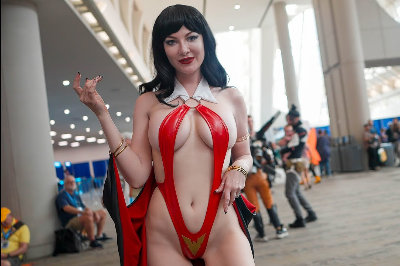Movie Review by Reece De Ville
Starring: Marlon Brando, Robert Duvall, Martin Sheen, Laurence Fishburne
Director: Francis Ford Coppola
“Saigon. Shit, I’m still in Saigon”
Logistically, APOCALYPSE NOW should never have been made. Stories of wildly inflating budgets, Martin Sheen’s near fatal heart attack, Marlon Brando’s increasingly difficult eccentricities and the trials of simply filming in the jungle have become the stuff of legend. That’s not to mention the deployment of countless real Huey helicopters for that added ‘Saigon realism’ and the rumours of real corpses being used to litter Kurtz’s camp. Mirroring the Joseph Conrad novel on which the film was partly based, Coppola et al ended up journeying into their own ‘Heart Of Darkness’…
Rather than re-release a new print of the film, Coppola has chosen to re-examine his original 4 hour cut of the film and to insert an extra 49 minutes of previously unseen material, creating the revised APOCALYPSE NOW REDUX. Much more than a run of the mill “director’s cut”, these new scenes help flesh out certain underlying themes and issues present in the original cut, whilst introducing us to a whole new set of characters particularly during the ‘plantation scene’.
It is the inclusion of this scene alone, which has created the most curiosity amongst the film community. Running for a lengthy 29 minutes, the scene finds Captain Willard (Sheen) and his boat crew, Chief (Albert Hall); Chef (Frederick Forrest); Clean (a 14 year old Fishburne); and Lance (Sam Bottoms) chancing upon a small army of French settlers who’s family have kept a house and plantation in Cambodia for centuries. After a lengthy meal, which sees one of the settlers Hubert deMarais (Christian Marquand) extolling the virtues of their life here and why they will never leave no matter how fierce the fight, Willard is seduced by Roxanne (Aurore Clement). The insanity of staying to guard a family property in the middle of a war zone is evident here, yet it also offers a touching view of Willard as he, momentarily, returns to some semblance of normality with Roxanne. Willard realises that he belongs neither in Saigon, or back in America and yet we feel he seems to find peace within if only for a night. Aurore Clement was said to be in tears of joy at the premiere of the new cut as she was witnessing her performance for the first time in over 20 years, and it’s hard not to emphasise with her particularly as the scene brings a new and important depth to the film.
Other new additions include more rhetoric from Colonel Kurtz (Brando) and more of the Playboy Bunnies seen briefly in the original cut. Kurtz reads aloud from ‘Time’ magazine to the captured Willard about a senator commenting on how the war is starting to “smell better”, before turning to Willard and saying “How does it smell to you, Soldier?” In that one line, Coppola manages to bring the audience into Willard’s plight, Kurtz’s morality and the blatant propaganda fed to the media. Also, the new Playboy Bunny sequence sees two of the ladies alone with Chef and Lance. Coppola cuts between the two rooms and we see Lance painting, quite menacingly, both himself and his ‘date’ with ‘war-paint’, whilst Chef is seen posing his ‘bunny’ to suit the memory of a poster of her he has on board the boat. The fragility and innocence of the two women is juxtaposed with the increasing madness and sense of ‘cabin fever’ experienced by Chef and Lance. Indeed, the ‘war-paint’ worn by Lance throughout the rest of the film almost certainly originates here, and helps to highlight his own personal journey down the river and into madness.
From 1979 to 2001, APOCALYPSE NOW REDUX still astonishes and horrifies in equal measures. Few films drag you right into the heart of the story and threaten to leave you there stranded amongst the madness. The new sequences and re-editing of the overall film have resulted in, perhaps, the creation of the ‘definitive’ version of what was already a classic. And, yes, it does run for 3 hours and 20 minutes, but the film flows at such a pace of dizzying technical superiority that you’ll feel exhausted but damn pleased with yourself for giving your thoughts and consciouncness a much needed jolt.
It may have been a television favourite for many years, but the big screen is where it belongs, and it serves as a reminder of a director on the edge of his own sanity and peak of his talent before it all seemed to slip away (JACK? “The horror…. the horror”)
A Classic
“This is the end, my only friend, the end”
![]()



